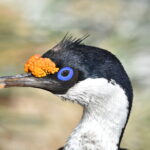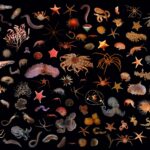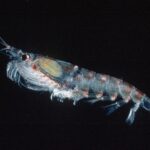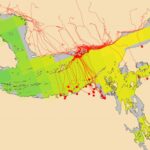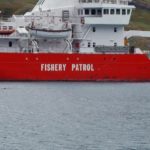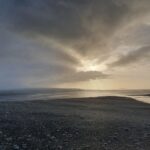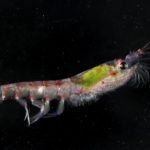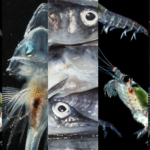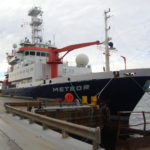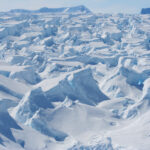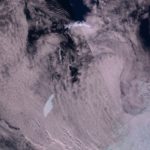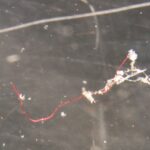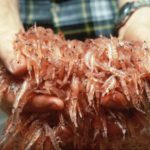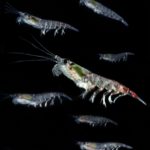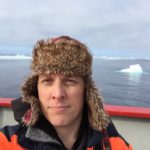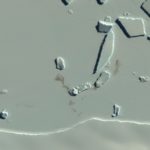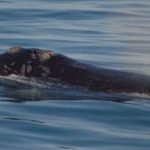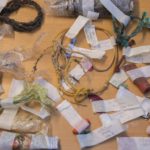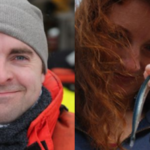Remote and hostile, Antarctica harbours some of the most amazing creatures on the planet. It is also a powerful natural laboratory for studying biodiversity, evolution and the impacts of climate change. Cut off from the rest of planet, Antarctica’s isolation and its cold climate have allowed some unique species to evolve.
Mostly covered in ice and snow, Antarctica is the driest, coldest and windiest continent on Earth. Little of its land surface can support life, so the communities of plants and animals that survive there consist of only a small number of species living in simple relationships. Because of the simplicity of these communities, Antarctica is an exceptionally useful place for scientists to uncover how ecosystems work.
Some of the creatures in these communities are particularly interesting. Known as nematodes, their ancestors survived on tiny areas of land left uncovered during the last ice ages, more than one million years ago. By studying these nematodes, scientists at British Antarctic Survey (BAS) are able to increase our understanding of evolution and help reconstruct Antarctica’s glacial history.
Unlike the land, the seas around Antarctica are home to a rich and diverse group of species that have evolved some unique ways of coping with the cold. Some Antarctic fish, for example, are the only vertebrates in the world that do not use red blood cells to carry oxygen around their bodies.
But because they are so well adapted to the cold, some of these species may not be able to cope with life in a warmer world. Climate change is likely to have a major impact on Antarctic species. From their research stations on and around the Antarctic Peninsula – one of the fastest warming parts of the planet – BAS scientists are well placed to study how these species are responding to climate change.
Compared with our understanding of the continent’s plants and animals, we know very little about Antarctica’s microbial life. Invisible to the naked eye, these organisms play a vital role in Antarctic ecosystems and, because they may help us produce new antibiotics and other compounds, are rich but untapped resource. At BAS, scientists are using state-of-the-art genetic methods to study the DNA of these microbes and, hopefully, harness their potential.
Globally-important populations of seabirds breed at South Georgia. However, human-induced impacts have led to the decline of many seabird populations. Four species of albatrosses and white-chinned petrels have shown persistent …
The evolution and ecology of Antarctic sea floor communities is a UKRI Future Leaders Fellowship, led by Dr Rowan Whittle, looking at the past, present and future of life at …
Whales are the largest krill predators in the UK Overseas territory of South Georgia, yet their impacts on krill stocks are poorly understood. Recently, whale surveys revealed high summer abundance …
CONSEC is addressing the challenge to understand the links between the biodiversity, structure and function of Southern Ocean ecosystems and the impacts of rapid environmental changes to improve scientific knowledge …
In the AI for smart conservation project, BAS are collaborating with local ecologists and conservation agencies to develop decision-making tools informed by sea ice forecasts. By combining satellite observations, GPS …
The South Georgia Pelagic Biodiversity project is a Darwin-funded project, led by BAS, and in partnership with the Government of South Georgia and the South Sandwich Islands (GSGSSI) and the …
The polar regions are experiencing the most rapid climate change observed on Earth: temperatures are rising in some regions of the Arctic and Antarctic at more than double the global …
This Darwin Plus funded project aims to improve our understanding of how Antarctic krill, foraging whales and the krill fishery interact in space and time, to improve krill fishery management …
Fish bycatch is a global problem requiring accurate information to develop conservation and management strategies. Within the Antarctic krill fishery, fish and larval fish are regularly observed as bycatch. Improved …
The HEXPLORES project aims to explore for active hydrothermal vents in the Red Sea Rift. Although the Red Sea Rift hosts the world’s largest submarine metalliferous sulphide deposit, no active …
Page 1 of 51
2
3
…
5
»Last »
1 June, 2023
Concern is rising about tipping points in the Antarctic region (Armstrong et al., 2022). Recent heatwaves, changes in the Southern Ocean, and a reduction in the extent of Antarctic sea …
Page 1 of 4091
2
3
…
409
»Last »
4 November, 2020
An iceberg is heading towards the sub-Antarctic island of South Georgia. A68a – the size of the UK county of Somerset – broke off from the Larsen C ice shelf …
23 October, 2020
New study of plastics in the Antarctic Peninsula, South Georgia and the Sandwich Islands
15 October, 2020
An international ‘Krill Action Group’, including experts from the British Antarctic Survey, has identified several research priorities to advance the understanding of Antarctic krill (Euphausia superba) and improve the management …
22 September, 2020
New research shows that Antarctic krill (Euphausia superba), a key link in the Southern Ocean food web, have refuges from the rapid climatic warming and ice loss that has degraded …
7 August, 2020
Please join us in congratulating Dr Huw Griffiths, Marine Biogeographer at British Antarctic Survey, who has been awarded the Scientific Committee on Antarctic Research (SCAR) Medal for Education and Communication. …
5 August, 2020
A new study using satellite mapping technology reveals there are nearly 20% more emperor penguin colonies in Antarctica than was previously thought. The results provide an important benchmark for monitoring …
12 June, 2020
A new study of albatrosses has found that wind plays a bigger role in their decision to take flight than previously thought, and due to their differences in body size, …
20 May, 2020
Scientists have discovered where a whale species that feeds around the sub-Antarctic island of South Georgia breeds during the winter months. This understanding of where the animals migrate from will …
28 April, 2020
Food wrapping, fishing gear and plastic waste continue to reach the Antarctic. Two new studies into how plastic debris is reaching sub-Antarctic islands are published in the journal Environment International. …
23 April, 2020
UK Research and Innovation (UKRI) has announced its latest round of Future Leaders Fellowships today (23 April 2020). Congratulations to Dr Dan Jones and Dr Clara Manno of British Antarctic …
Page 8 of 20«
1
…
6
7
8
9
10
…
20
»Last »
